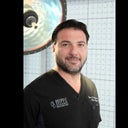I just had breast reduction and lift two days ago, and I have a lot of fluid retention?
What causes this? How long will it take to get rid of the excess fluid? I actually weigh 4lbs more than I did before the surgery
What causes this? How long will it take to get rid of the excess fluid? I actually weigh 4lbs more than I did before the surgery


What’s trending? Who’s turning heads? Which TikTok myths need busting? We’ve got you. No fluff, no gatekeeping—just real talk. Get our free, unfiltered newsletter.